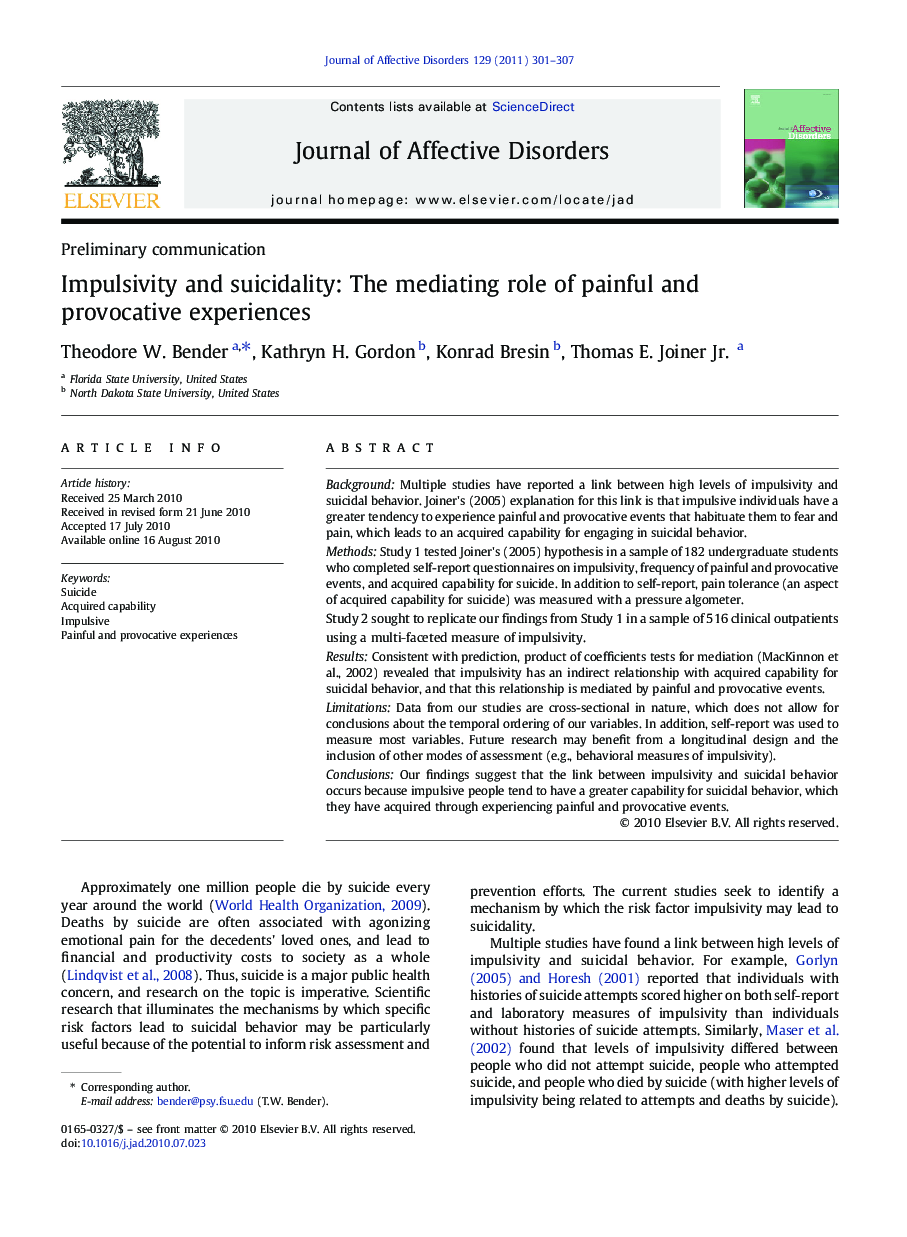| Article ID | Journal | Published Year | Pages | File Type |
|---|---|---|---|---|
| 4186539 | Journal of Affective Disorders | 2011 | 7 Pages |
BackgroundMultiple studies have reported a link between high levels of impulsivity and suicidal behavior. Joiner's (2005) explanation for this link is that impulsive individuals have a greater tendency to experience painful and provocative events that habituate them to fear and pain, which leads to an acquired capability for engaging in suicidal behavior.MethodsStudy 1 tested Joiner's (2005) hypothesis in a sample of 182 undergraduate students who completed self-report questionnaires on impulsivity, frequency of painful and provocative events, and acquired capability for suicide. In addition to self-report, pain tolerance (an aspect of acquired capability for suicide) was measured with a pressure algometer.Study 2 sought to replicate our findings from Study 1 in a sample of 516 clinical outpatients using a multi-faceted measure of impulsivity.ResultsConsistent with prediction, product of coefficients tests for mediation (MacKinnon et al., 2002) revealed that impulsivity has an indirect relationship with acquired capability for suicidal behavior, and that this relationship is mediated by painful and provocative events.LimitationsData from our studies are cross-sectional in nature, which does not allow for conclusions about the temporal ordering of our variables. In addition, self-report was used to measure most variables. Future research may benefit from a longitudinal design and the inclusion of other modes of assessment (e.g., behavioral measures of impulsivity).ConclusionsOur findings suggest that the link between impulsivity and suicidal behavior occurs because impulsive people tend to have a greater capability for suicidal behavior, which they have acquired through experiencing painful and provocative events.
